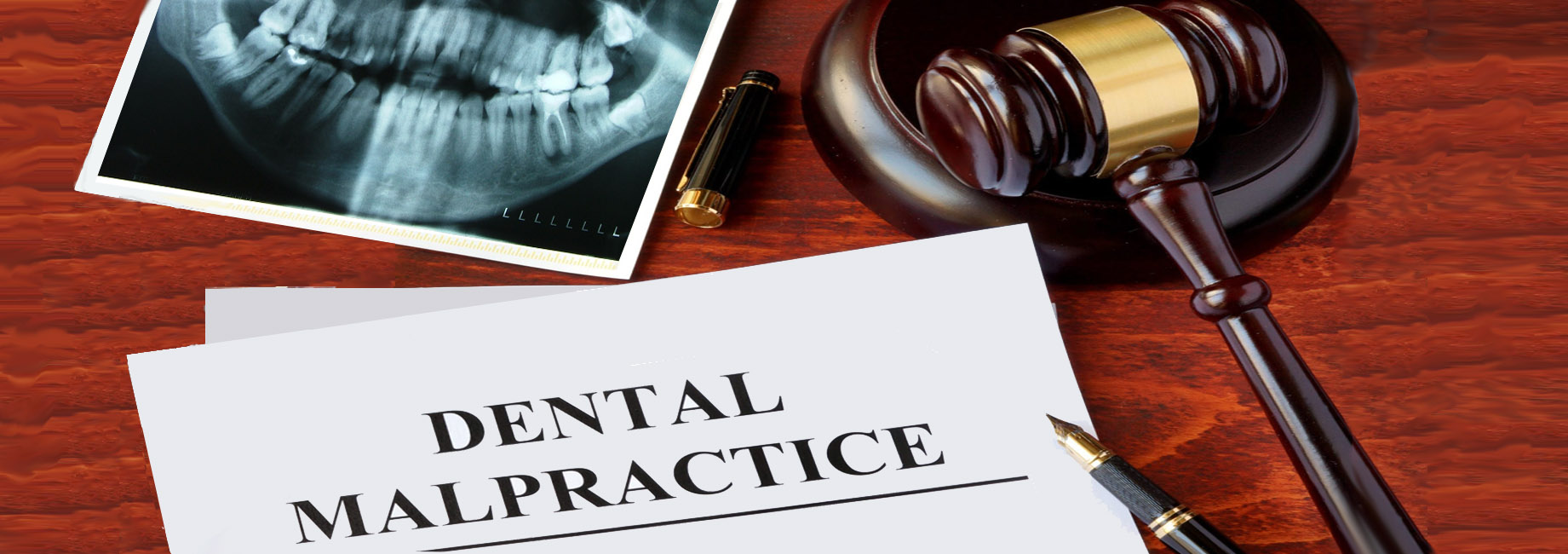

As a dental malpractice lawyer, Dane Levy has the experience and knowledge that can help you win your dental malpractice suit. Oral Cancer is an awful thing for anyone to have to go through, and if the cause is dental malpractice, the doctors or professionals involved should be held responsible. With a competent dental malpractice attorney like Dane Levy, your case will receive the attention it deserves.
Selected excerpts of reported cases, decisions and settlements. The following factual scenarios and dental malpractice case summaries have been reported in various publications or handled by this law firm.
Failure to perform incisional biopsy results in delayed diagnosis of cancer and loss of portions of the neck, jaw, and tongue. Plaintiff went to an oral surgeon complaining of voice change and difficulty swallowing. Defendant removed a benign growth on the vocal cord and performed a thyroidectomy. During the surgery, defendant also performed a punch biopsy of the base of plaintiff’s tongue. In this procedure, forceps are used to remove a small surface of growth for examination. The test results of the growth were negative. Defendant noted in a later visit that the base of plaintiff’s tongue was enlarged but did not do another biopsy. One year after plaintiff’s first visit with defendant, plaintiff went to another oral surgeon for a second opinion. A biopsy revealed cancer of the tongue that had metastasized to the neck and lower jaw. Plaintiff underwent chemotherapy and surgical removal of 75% of the tongue and parts of the neck and mandible. Jury Award: $1.2 million including $200,000.00 for loss of consortium to plaintiff’s wife.
Doe Patient v. Roe Dentist, et al.
Result: Settlement ($850,000.00 + confidential amount)
Court/Date: L.A. Superior Court / December 2004
for Plaintiff: Confidential
for Defendants: Confidential
In March 2001, plaintiff went to defendant general dentist for an examination and dental treatment. Defendant failed to include plaintiff’s lower right wisdom tooth on x-ray despite documenting in plaintiff’s chart that it was impacted. Several dental visits later, in November 2001, plaintiff complained to defendant of bleeding in the area of his lower right wisdom tooth. Defendant again failed to take an x-ray of the area. In December 2002, defendant took an x-ray of the area of the lower right wisdom tooth and noticed abnormality on x-ray. Plaintiff was referred to an oral surgeon for biopsy. Biopsy revealed squamous cell carcinoma arising from a dentigerous cyst associated with the impacted lower right wisdom tooth.
The plaintiff underwent a modified radical neck dissection and mandibulectomy procedure and received concurrent chemotherapy and radiation treatment. Two lymph nodes were found to contain metastatic disease. During litigation, recurrent disease arose whereby plaintiff underwent another radical neck dissection and mandibulectomy procedure and received concurrent radiation treatment. Plaintiff’s cancer was categorized as Stage IV.
Plaintiff contended that the defendant general dentist negligently failed to perform a comprehensive exam at plaintiff’s first visit in March 2001 and thereafter. The standard of care would have required an x-ray which included the impacted lower right wisdom tooth. When plaintiff exhibited bleeding from the area of the impacted lower right wisdom tooth, the standard care required careful examination of the area. Had defendant done so, it would have led to a biopsy 13 months earlier. Defendant contended that the standard of care was not breached and that an x-ray of an un-erupted impacted third molar was not required under the standard of care. Defendant further contended that plaintiff’s cancer was extremely rare and not foreseeable by defendant.
Stage IV cancer, shortened life expectancy, diminished quality of life, disfigurement, loss of function.
Plaintiff and his wife also settled with other confidential defendants for a confidential amount. Total monies recovered included plaintiff’s wife’s loss of consortium claim and a waiver of any future wrongful death action from plaintiff’s wife and minor children.
Tongue cancer is a serious condition that requires prompt attention and treatment. As dental professionals, dentists play a crucial role in identifying potential signs of tongue cancer during routine check-ups. Early detection is key to improving outcomes and minimizing the need for invasive treatments.
Consider the following scenario: A patient visits her dentist multiple times over the course of several months for a persistent lesion on her tongue. Despite the recurring visits and the visible sore, the dentist does not recommend a biopsy. Instead, he prescribes antibiotics and pain-relieving mouthwash. If this delay in proper diagnosis and treatment were to occur, the patient’s lesion could progress to an advanced stage of squamous cell carcinoma. The patient might then have to undergo aggressive treatments, including chemotherapy and partial removal of her tongue. These invasive treatments could leave the patient with long-term complications, such as difficulty speaking clearly and other functional impairments.
Dentists have a duty to thoroughly examine the mouth, tongue, and throat for any abnormalities or suspicious lesions at each examination of the patient. If a concerning sore or lesion is identified, the dentist should either perform a biopsy or refer the patient to a specialist for further evaluation. Failure to properly assess and address potential signs of tongue cancer can lead to delayed diagnosis, allowing the cancer to progress and spread. Patients may then require more aggressive treatments, such as chemotherapy, radiation, or surgery. These treatments can result in serious complications and long-term effects, including difficulty speaking, eating, and swallowing, as well as disfigurement and psychological distress. In the most severe cases, delayed diagnosis can even be fatal.